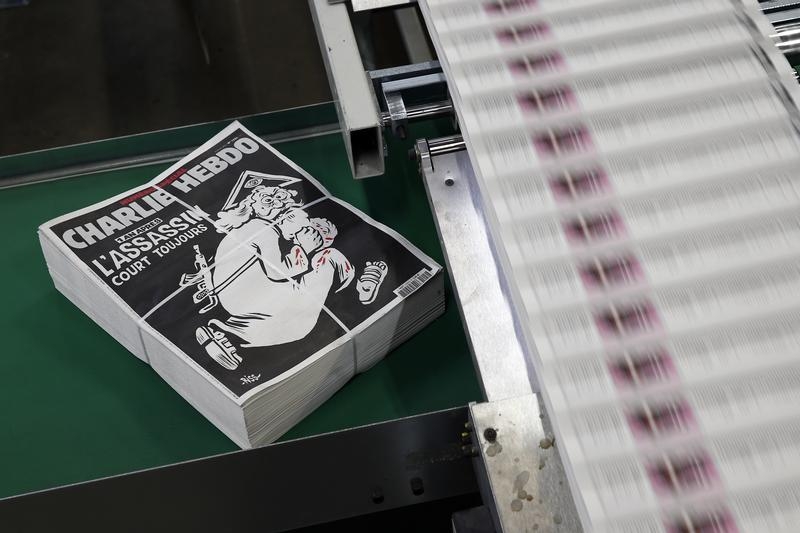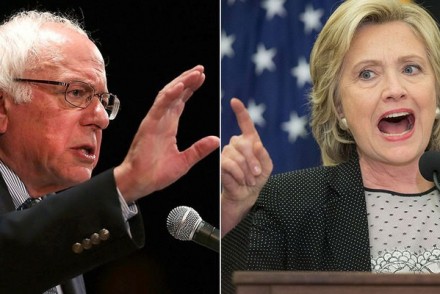Approximately one year ago, armed gunmen marched into the offices of the French satirical newspaper Charlie Hebdo, murdering 11 people in their offices. Later, a self proclaimed co-conspirator murdered several people in a Jewish grocer, with the intent of helping the Charlie gunmen escaped. On the face of it, the attack was nothing new. It was not the first time, nor the last, that satirists of Muhammed would be attacked. From the so-called Rushdie Affair, where a Fatwa was issued by the Supreme Leader of Iran against the author Salman Rushdie for his 1988 book “The Satanic Verses”, to the murder of filmmaker Theo van Gogh for making a film critical of the treatment of women in Islam, to the attacks on EU offices, Danish and Norwegian embassies associated with Danish Cartoonists in 2006, it was already known that to caricature Mohammed or Islam was to take one’s life in their own hands. Charlie Hebdo’s offices had already been subject to arson attacks in 2011, and had been sued numerous times by various organizations, both Muslim and non-Muslim, for inciting racial hatred. Indeed just this week the Vatican declared its new cover, depicting God as an assassin, to be “blasphemy”.
But one year later, I can’t escape a nagging feeling, a feeling that I’ve only begun to see reflected in people around me. This time, something really was different. One year later, Charlie has irrevocably changed everything.
At the time, the reactions on the right were painfully predictable. Members of the extreme right repeated their claims that every Muslim could be a secret walking ISIS cell in disguise. On the far left the apologists came out in full force. Glenn Greenwald hardly even mentioned the fact that so many people had died, because, you know, the cartoons were racist after all. All across social media, so-called far left liberals gave themselves a pat on the back for saying “Je ne suis pas Charlie” and blamed the usual tired clichéd Commedia del Arte characters of western racism, western imperialism, and Islamophobia. PC Culture, which, when history is written on this subject may have been seen at its zenith around the period of this controversy, was having none of it.
And as usual, there was no better whipping boy for this faction than the so-called New Atheists. This renewed attack against them had been heating up prior to the Charlie Hebdo incident with the rise of ISIS the summer before and Islamist Terrorism now back in the headlines on a daily basis, culminating in the now infamous collision between Sam Harris and Ben Affleck on Real Time with Bill Maher. If you’re reading this, you’ve probably seen this incident many times, but just in case, here it is yet again.
And perhaps even more nauseating is the equally infamous response to this exchange by fellow apologist and regressive mega-star Reza Aslan (not to be missed as well is an excellent piece debunking his claims by Mohammed Syed and Sarah Haider ).
Already within myself, I was feeling my moral understanding of Islamic terrorism shifting. I had already acquainted myself with the most prominent New Atheist writers, including Harris, Dawkins, Hitchens, and Dennett, but my basic understanding of conflict in the Middle East until ISIS was still very much in line with that of Greenwald and Aslan. Truthfully, in the pre-ISIS period, it was a very convincing theory. The overthrow of Mossadegh in Iran begat the Islamic Republic of Iran. The Sykes-Picot agreement begat the problems of Iraq and Syria. Intervention in Afghanistan against the Soviets begat the Taliban and Al-Qaeda. The overthrow of Saddamm Hussein begat Al-Qaeda in Iraq. I had been one of those fervent anti-Iraq-War voters in 2008 that helped propel Barack Obama into office, absolutely fuming with anger about America’s blundering adventures in the middle east. It was a theory that up until recently seemed consistent and sensible.
But the rise of ISIS and a renewed conflict in that Gaza really did start to undermine all that for me. After all, although ISIS was an outgrowth of Al-Qaeda in Iraq, it came to prominence as a result of a Syrian Civil War that the United States very forcefully decided to stay out of. What did the massacre and sex enslavement of Yadzidi women by ISIS have to do with US foreign policy decisions? How could such actions have “nothing to do with Islam” when ISIS was so clearly and plainly justifying it using plain text in the Quran that so clearly justifies it?
Still however, I largely kept my feelings to myself. After all, to openly declare that ISIS has a connection to Islam, or to admit that ancient dogma could actually lead to violence in the modern world was to invite a hailstorm of vicious criticism from the left. This period was seeing the rise of the so-called Social Justice Warriors, and stories of people being shamed, harassed and fired for views that seemed anathema to the liberal orthodoxy were just beginning to become widely known. It would still be some time before I finally had a nasty encounter with a friend infected by this Social Justice virus, but I was already becoming fearful of speaking my mind and worried about the social media firestorm that could consume me as it had so many others.
Charlie changed all that for me irrevocably. For two reasons.
The first reason – we now saw a violent response no longer cast against the simplistic boogeyman of George Bush’s America. We had elected the “right” President for this job, a president who knew the difference between Sunni and Shia, between Afghanistan and Iraq, and had made reconciliation with the Muslim World a core commitment from the earliest days of his presidency (his speech in Egypt in 2009 seems as though from another planet when compared to today’s landscape). This was the President who withdrew from Iraq and killed Osama Bin Laden, and was totally unafraid to stretch out a hand of cooperation to Iran. If US foreign policy was singularly responsible for the rise of terrorism, then why did this new and more virulent strain of it arise after our troops had been withdrawn, our involvement in the Arab Spring minimal or on the right side of history as far as our own ideals are concerned, and our commitment to not be involved in the Syrian Civil War maintained? This was the equation ceaselessly promoted by the Chomskys and Greenwalds for years in terms of how to prevent and end terrorism – why did it seem to only be increasing in this context? People may point out that Obama stepped up the use of drones and failed to close Guantanamo Bay during his presidency, but this does not change the fact that now America was doing many things that these critics insisted we should have done all along. Bush’s blundering cowboy-style ways were no longer our policy, and if such actions were the cause of such terrorism, surely shouldn’t reversing course at least reduce it?
The second reason it changed everything was my inability to stomach the obviously callow and absurdly illogical response to the attack by the far left any longer. After such a clear violation of our most deeply held principles, to see so many members of my fellow liberal tribe indulge in the narcissism of our own supposed culpability in these actions was the final nail in my regressive coffin. How could intelligent, well-educated, rational people make the false equivalence between the supposed offense caused by the cartoons and the murder of the cartoonists themselves? How could people who supposedly believe in the equality of all people reduce non-white non-Christian people to mindless automatons, unable to think and only able to react to stimuli like a caged animal? How could we indulge in so many ridiculous and irrational beliefs on the grounds of tolerance – like that Islam is a race, or that lampooning a religious icon is the same as bigotry against people, or that we actually do need to adhere to anti-blasphemy laws with respect to one religion, as opposed to the many others to which we would never supplicate ourselves?
For me, and I believe others, Charlie Hebdo was this last back-breaking straw. We lost our fear of speaking out, and the moral clarity of this new liberal cause came into focus – there is no degree of religious offense that can justify murder, and there is absolutely no room in liberalism for those that would sacrifice its dearest principles upon the alter of a narcissistic, self-serving, disingenuous multiculturalism. Since then, and through the most recent attacks in Paris and San Bernardino, I continually see a new evolution of thought on this from my friends and family. In tandem with a rejection of the post-modernist PC left for other reasons, the cries of “racist” for anyone who dare criticize religion are beginning to ring hollow and to lose their sting. Previously more controversial commentators like Ayaan Hirsi Ali and Maajid Nawaz are beginning to be featured on major news networks almost as often as their Regressive counterparts. I can feel when I talk to people that many simply do not believe the largely disproven Chomskyesque theories anymore, and though we have not found it yet, we are in the process of finding a better way forward to end this threat of Islamist extremism without sacrificing our deeply held belief in tolerance and openness.
Ayaan Hirsi Ali talks most explicitly about the need for a Muslim Reformation. But in tandem with this is another, perhaps even more important one – the Liberal Reformation, a Reformation that I believe is already taking place in our midst. There is a movement out there, still in its infancy that is slowly coalescing around a set of core principles to save liberalism from itself. A renewed advocacy for free speech, rational debate, and fearless defense of human rights over advocacy of any particular culture or group is beginning to find thought leaders and media figures, from older New Atheists like Dawkins and Harris to liberal Muslim reformers like Ayaan Hirsi Ali, Maajid Nawaz, Ali A. Rizvi, Faisal Saeed Al-Mutar, Asra Normani, and more. There isn’t a widely disseminated term for it yet – Rizvi advocates for a “New Center” as one possible choice, while Milo Yiannopolous describes “cultural libertarianism“. Along with a strong movement against Authoritarian Political Correctness seen in the public sphere today, this movement is pulling in figures from the right and the left with a renewed commitment to evidence and open debate as the way forward to solve the problems of terrorism and dogmatism moving forward.
It is the rejection of the Politically Correct, and the passionate embrace of the Factually Correct. It has not been soon enough in coming, and it cannot be too soon when it succeeds in becoming the primary mode of our discourse. Solving the problem of theocratic violence in our time – without falling into the hands of truly racist and xenophobic leaders like Donald Trump or Marie Le Pen – depends on our willingness to acknowledge the failure of the old framework and to embrace a rational process by which we find a better one. The time to search our souls is now, and to emerge with new beliefs and a new vocabulary worthy of the struggle we seek to win.
In this crisis, dogmatic superstition isn’t the solution to our problems – dogmatic superstition is the problem.





No Comments